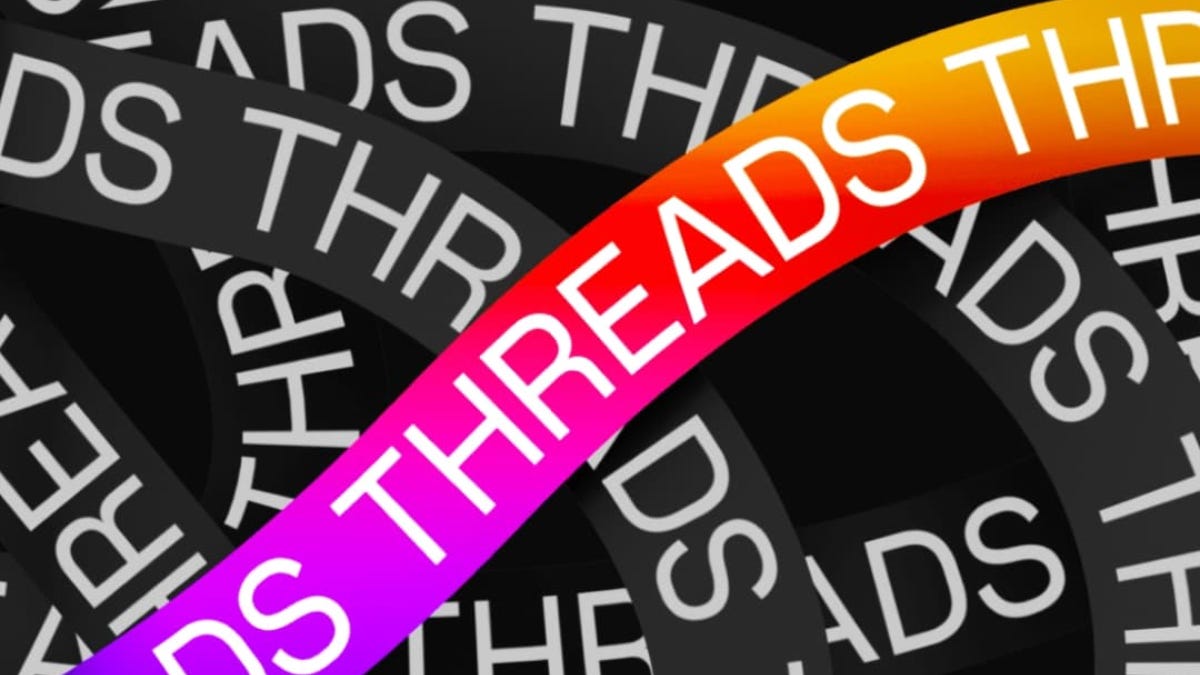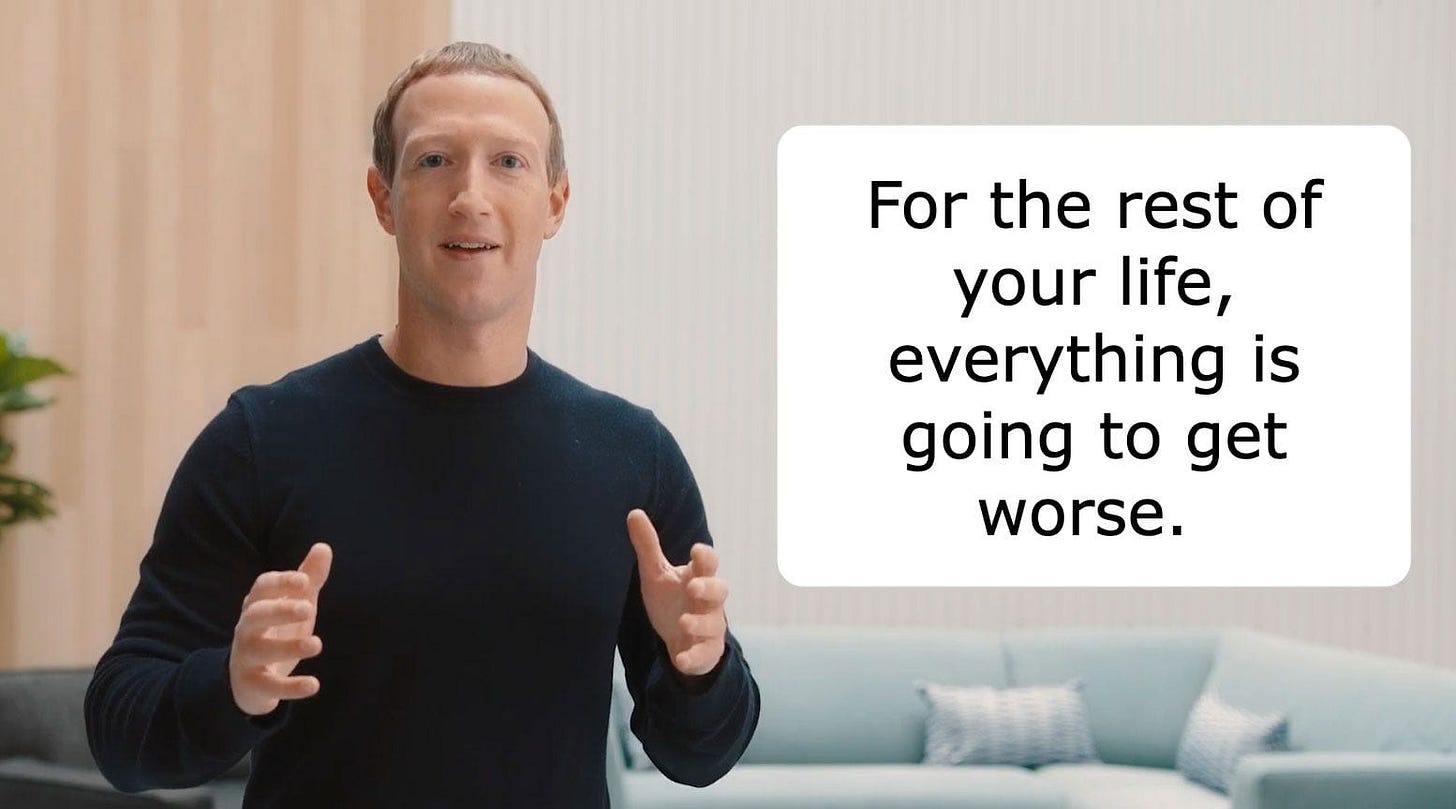Threads won’t save us from Twitter
Meta's competitor will replicate its other platforms' problems
For the past nine months, many Twitter users have been on a quest to find the replacement for Elon Musk’s slowly deteriorating social media app. First there was Mastodon, the ~decentralized~ alternative whose signup process and vibe were simply too off-putting for too many users. A bunch of other far less notable apps followed it, including Cohost and Spoutible. But most people stayed on Twitter.
A few months ago, there was another wave. Substack launched its Notes feature, causing the Chief Twit to have a minor meltdown, but its expectation that users subscribe to people’s newsletters in order to follow them on Notes was ridiculous and others still don’t love Substack’s politics. Soon after, Jack Dorsey-funded Bluesky let in a bunch of shitposters and left-wingers from Twitter, causing a brief wave of excitement that it could be the One True Microblogging App, but its slow opening has caused that momentum to wane.
Now Twitter may be facing its biggest challenge — or at least the most well-resourced — of the Musk era with the launch of Meta’s new Threads app that seeks to replicate the Twitter experience under Mark Zuckerberg’s control. Threads dropped last night, causing a wave of signups as people rushed to see what the new Twitter competitor had to offer. By this morning, it had more than 30 million users.
But it’s worth remembering that Threads is directly linked to Instagram and its more than a billion existing users. When you sign up, it pulls in your Instagram details and username, and encourages you to follow everyone you’re already connected with over there. That will significantly accelerate adoption, even just for people trying it out and setting up a presence. (It’s also why users in the European Union can’t sign up yet, because that practice may violate European data and privacy rules.)
But just because Threads is experiencing a rapid influx of users doesn’t mean it will automatically win the fight with Twitter. There are plenty of reasons to be hesitant to crowd onto another Meta platform.
Threads isn’t a good app
I won’t lie, it’s been very surprising to me how quickly many people have been willing to embrace Threads given all the complaining we do about Facebook and Instagram, and the general dislike of Mark Zuckerberg among not just the Very Online, but the general public too.
Threads isn’t even a great app: the experience is clunky, search doesn’t work well, notifications are an absolute mess, there are no direct messages, it’s hard to find your Twitter friends (who are often very different from your Instagram friends), and the only feed available to people is an algorithmically-generated cesspool filled with brands, grifters, and influencers you’d probably like to continue forgetting exist. You can’t even delete your account without deleting your entire Instagram profile.
Zuckerberg and Instagram head Adam Mosseri say there are plenty of improvements to come, including a feed of just the people you follow, but can these people really be trusted to ensure Threads becomes — and remains — a good experience for its users? Mosseri has been frequently under fire by Instagram users for degrading the experience to chase profit in recent years by increasing the number of ads, pushing an algorithmic feed, and introducing a lot more videos instead of photos.
Threads doesn’t have any ads at the moment, but they’re coming. Before its launch, people were already calling out Meta’s admission in the App Store of how much data it would collect on users. Zuckerberg posted on Threads that the company’s plan is to make the app work well and “see if we can get it on a clear path to 1 billion people” before exploring monetization, but if it succeeds, it will be swamped with the targeted ads users are used to on Facebook and Instagram. Is intensive data collection, pervasive tracking, and endless ads really what people want from a new Twitter?
Meta has a terrible history
The argument I’ve been hearing from some people excited by Threads is that at least it allows users to get away from Musk and his promotion of right-wing politics. This isn’t exactly new: Twitter’s algorithm has long favored conservatives, but Musk has taken it to a new level by unbanning extremist accounts and actively courting right-wing users, among his many other actions.
Pretending Meta is better ignores how it’s done the very same thing for years, serving as a central node for the global dissemination of right-wing propaganda. Company leadership, including Zuckerberg himself, actively shaped the platform to protect right-wing users like Alex Jones from enforcement and explicitly ensured left-wing news was downgraded. That was driven by Meta’s business model: it knew right-wing propaganda generated greater engagement, which meant more ad revenue at the end of the day.
But beyond that, we also know Meta has a serious problem with content moderation. Facebook helped fuel the genocide against the Rohingya in Myanmar, then in 2020 Sophie Zhang blew the whistle on its continued role destabilizing political systems around the world. More recently, Insider has reported on Facebook’s partial responsibility for the murder of men in Ethiopia and Iraq because it failed to take action on misleading posts about them that were spreading on the platform.
And it’s not that it can’t moderate when it wants to: Meta’s platforms are much more prudish than Twitter, not allowing posts with nudity, including even a woman’s nipple despite longstanding criticism of its policy. Mosseri confirmed that same standard will apply to Threads, providing yet another reason why it may struggle to replicate Twitter.
The fight continues
At this point, I feel like I have a pretty good track record on judging the new Twitter competitors when they emerge. Despite the hype its gotten over the past day, I’m not convinced Threads is going to save us from Elon Musk’s social media wasteland. Meta doesn’t have a great track record of launching new products — besides Facebook, its other big platforms were acquired — and I have a really hard time believing that people are ready to spend more time in Mark Zuckerberg’s fiefdom just because they’re fed up with Musk too.
Does that mean Threads will die a quick death? I doubt it. Both apps will coexist, at least for a while, because people who already have big followings on Instagram have an incentive to give Threads a go and see if it’s another way to keep their followers engaged with the content. The problem is that the app isn’t great right now, and if it doesn’t improve quickly the goodwill it has right now won’t last long. People giving it a try will simply filter back to Twitter or Mastodon or Bluesky or whatever else they’re using. Maybe even Instagram.
Threads comes after a series of Twitter blunders, but that doesn’t mean the bird app won’t respond. CEO Linda Yaccarino tweeted that “the Twitter community can never be duplicated,” while Musk said, “it is infinitely preferable to be attacked by strangers on Twitter, than indulge in the false happiness of hide-the-pain Instagram.” Semafor reported earlier today that Twitter is threatening to sue Meta for “systematic, willful, and unlawful misappropriation of Twitter’s trade secrets and other intellectual property.”
With all the recent talk of an on-again, off-again “cage match” between Musk and Zuckerberg, maybe it will ultimately be more of a showdown in a courtroom between their chosen lawyers than a head-to-head between the billionaires.






